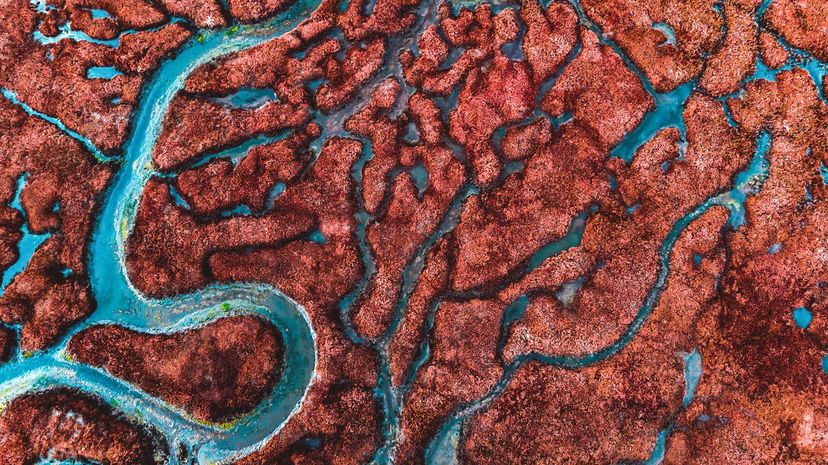
About This Quiz
Throughout the world, civilizations were built along some of the largest rivers. From the Ganges to the Amazon, each river has something unique about it that you should be able to remember from middle-school world history. But, are you enough of a geography buff to be able to answer our trivia questions about them?Â
While you're going through this quiz, try to picture yourself floating down the mighty Mississippi River on a sternwheeler or paddling a kayak along on the Colorado. Then, read each question carefully before you choose your answer. We haven't offered up any trick questions, but you'll need to be as aware as a tugboat captain during the dry season to get them all right. If you keep your eyes open and trust your first thought, there's a good chance that you'll score higher than the canyon walls of the Zambezi.Â
Will you amaze yourself with your major rivers trivia knowledge, or will you have taught yourself a few new things today? Go with the flow while you make your way through our questions, and find out if your geography brainpower could fuel a few hydroelectric stations. Keep scrolling down, and let's find out how well you'll do!Â
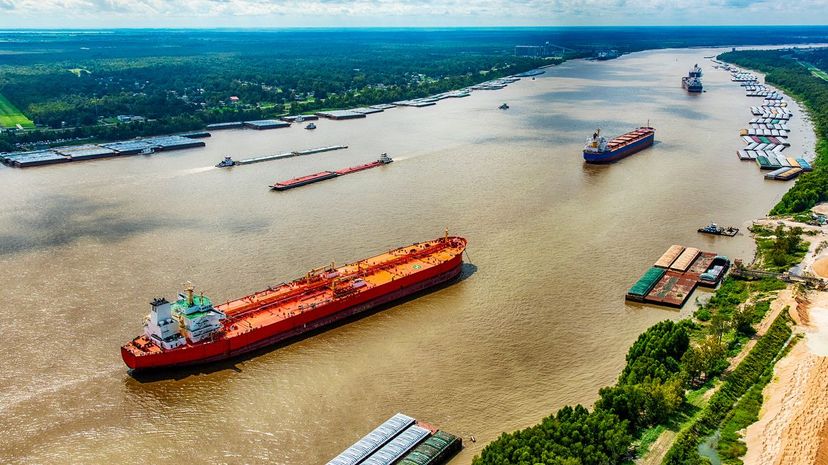
"Old Man River," or the Mississippi River, runs 2,348 miles through the heartland of the United States. It might be known for its transportation history, but it serves another essential purpose. The Mississippi River is a drainage source for several other North American rivers, which helps to avoid flooding.
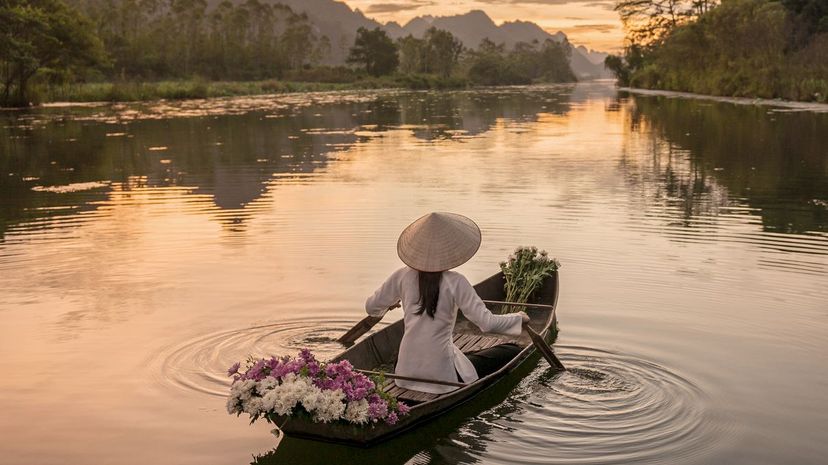
Whether you call it the "child of the ocean" or "long river," the Yangtze is the world's third longest river. Flowing 3,915 miles from Tibet to Shanghai, it has over 700 tributaries.
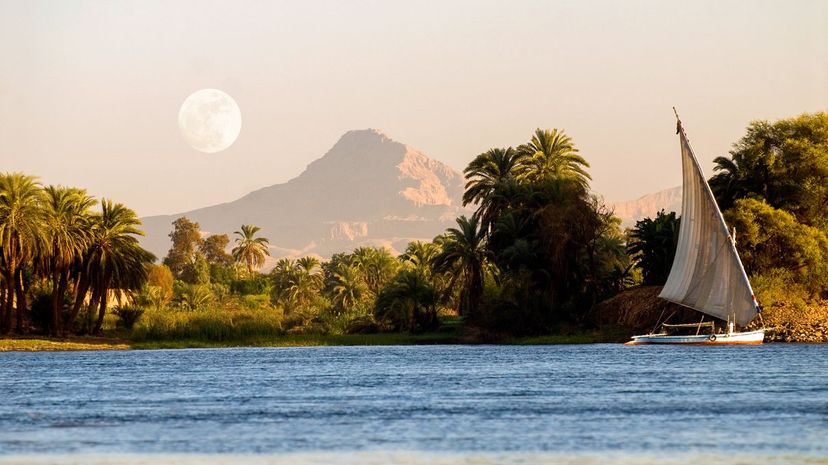
The Nile is the longest river in the entire world! When Cleopatra looked out over the Nile, she was only seeing a little of its 4,160 miles. During the days of the ancient Egyptians, the river's fertile soil served as the perfect farmland.
Advertisement
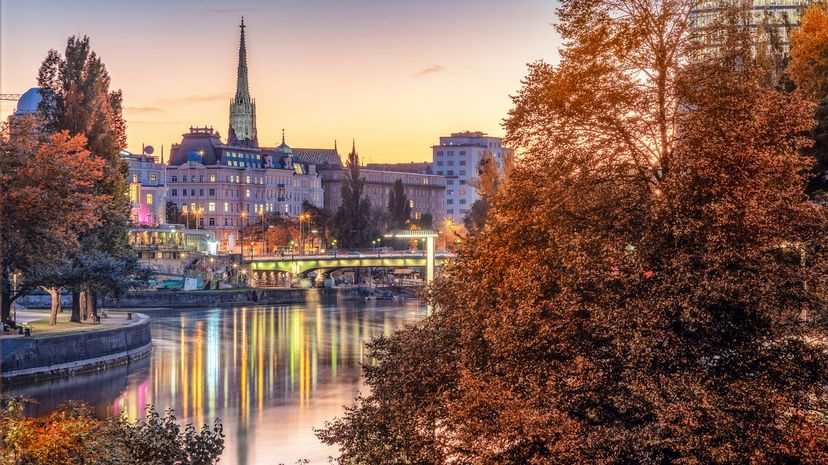
The Danube River runs through more countries than any other country in the world, including Austria, Serbia, Hungary, Romania and Bulgaria. It runs from the mountains of Germany and into the Black Sea.
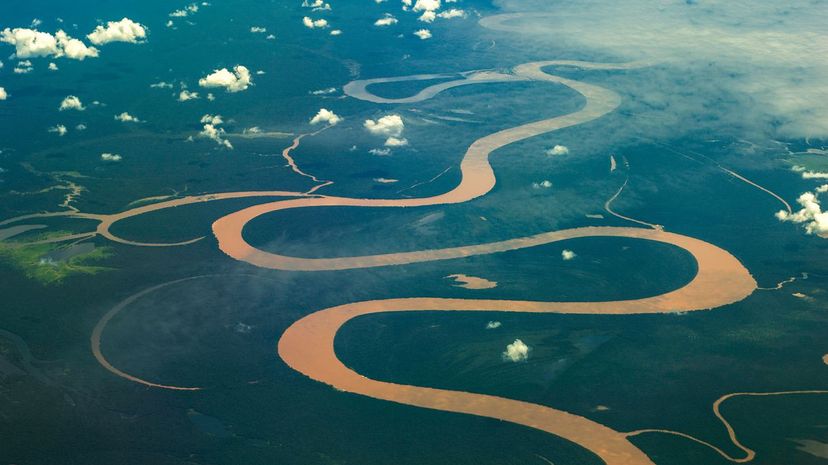
Starting in Peru, the Amazon River is the world's second-longest river. Created over 11 million years ago, the watery giant empties into the Atlantic Ocean on the Brazilian coast. It's the primary life source for over 1,000,000 species of rainforest plants and animals.
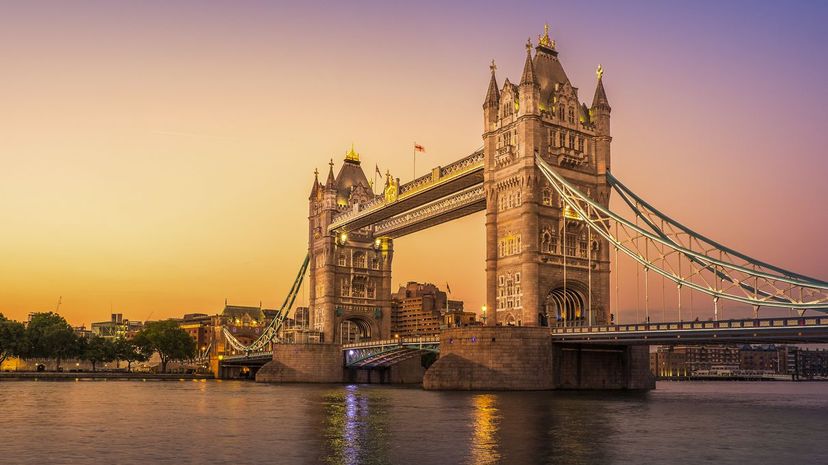
At only 230 miles long, the River Thames might be England's second-largest river, but it's the most popular. The London Bridge straddles the river shortly before it flows past Oxford and empties into the North Sea.
Advertisement
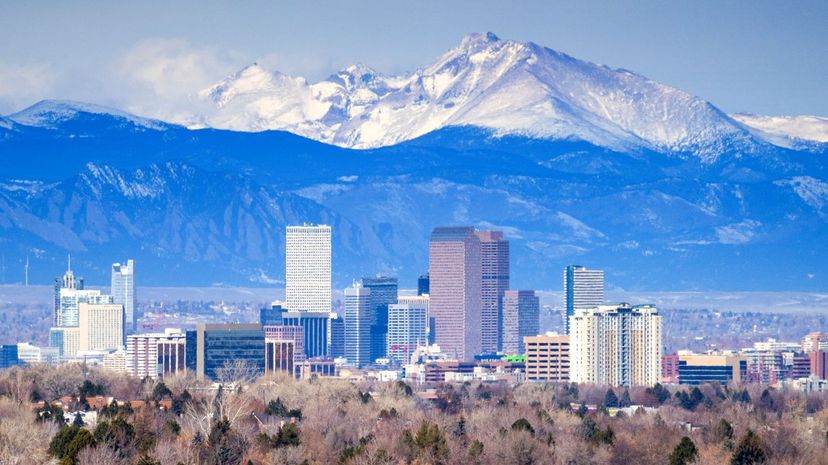
Formed by a confluence of four smaller rivers, the Missouri River starts in the Rocky Mountains of Montana. If you were to hear locals talking about it, you might hear them calling it "Big Muddy."
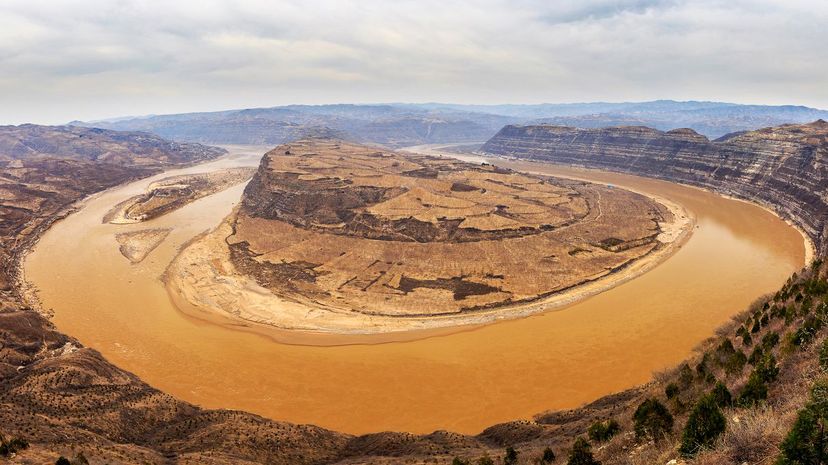
Known as the cradle of Chinese civilization, the Huang He runs through nine different Chinese provinces. The world's muddiest river gets its name from the minerals that deposit as the river travels through mountainous terrain.
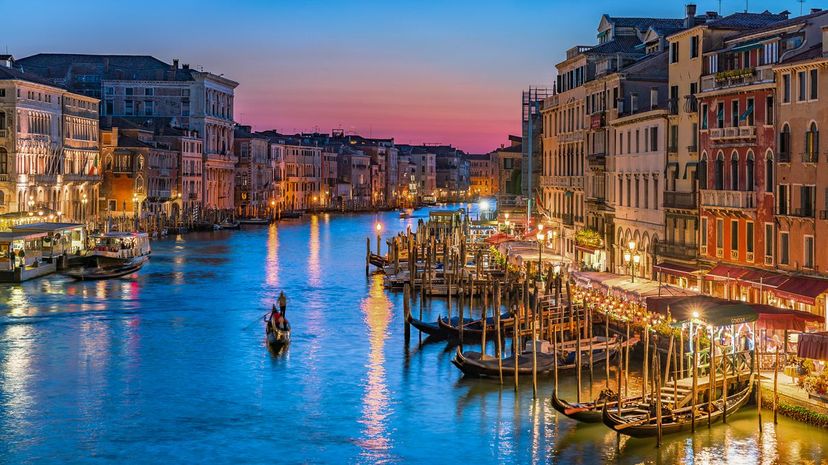
The Euphrates River runs through Turkey, Syria and Iraq, but it's all the way across the Mediterranean Sea from Italy. The Euphrates and the Tigris meet up in Iraq to form a lush valley in the Mesopotamian region.
Advertisement
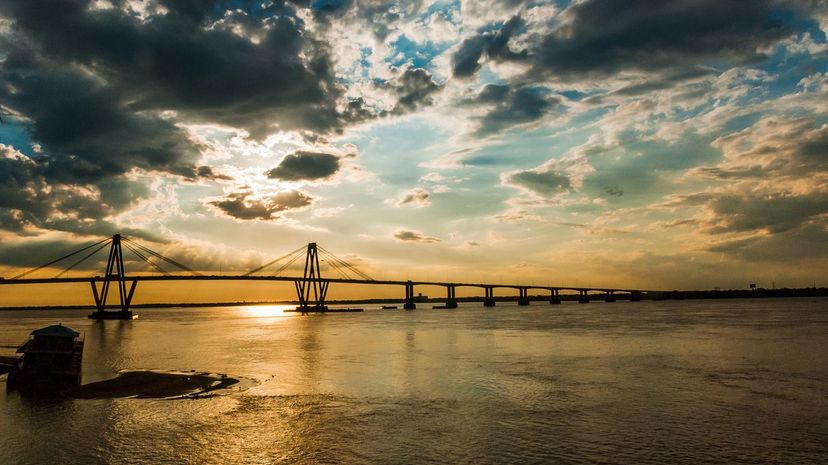
With a depth sometimes reaching 558 feet, the Parana River flows through the southeastern part of South America. It's known for its one of a kind birdwatching and helps to connect the innermost portions of the continent with the Atlantic Ocean.
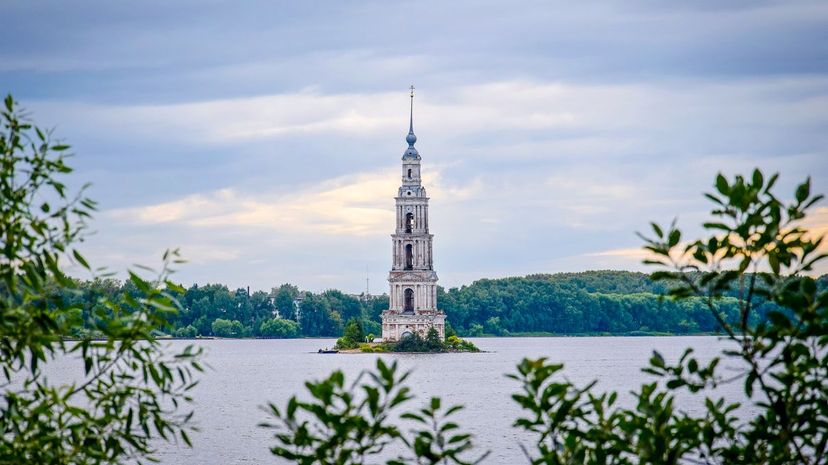
The Volga River is not the river you see running through Moscow, but it is Europe's largest. Moscow sits on a tributary of the Volga River. The Volga runs from just outside Moscow and all the way to the Caspian Sea, though.
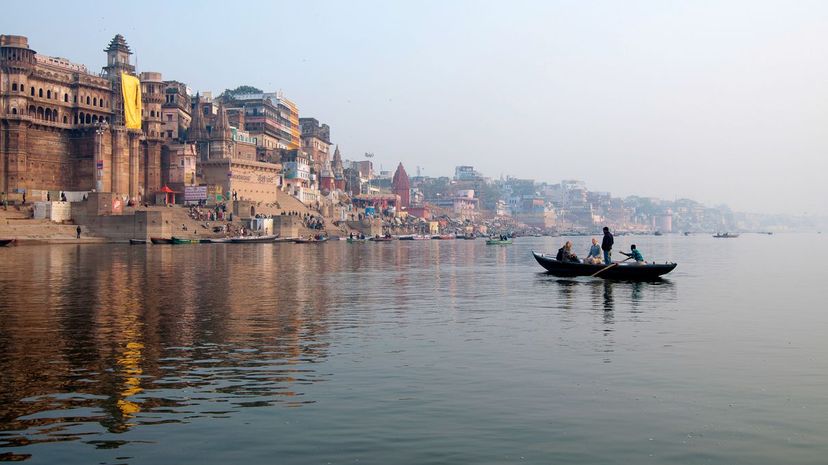
It's not uncommon to see practitioners of the Hindu religion bathing in the sacred waters of the Ganges. Running 1,569 miles through India and Asia is considered the embodiment of the goddess Ganga.
Advertisement
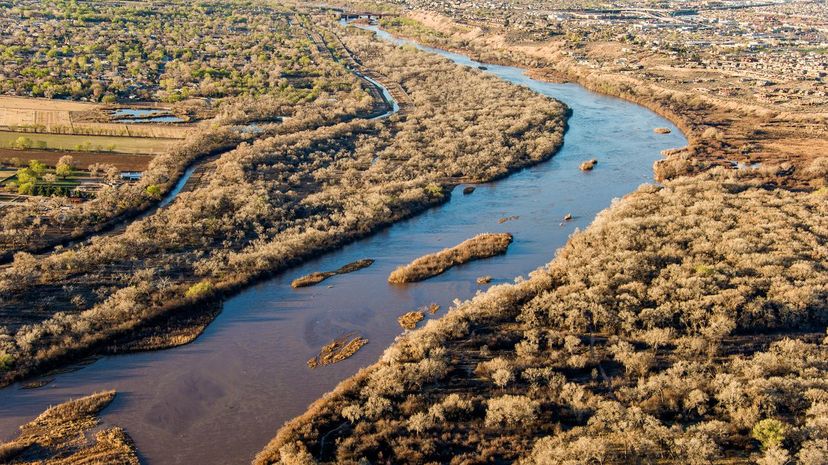
The Rio Grande empties into the Gulf of Mexico after running through the Chihuahuan region of Mexico and the United States. It's not one of the major players in the river trade game, but there would be little irrigation in the desert area without it.
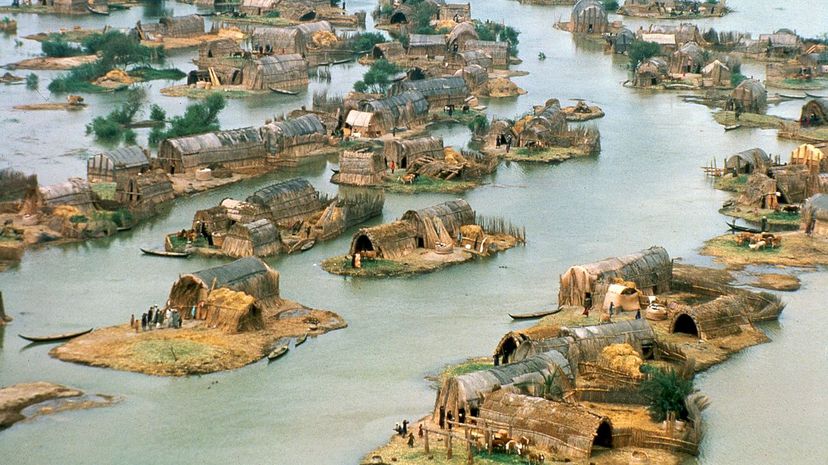
Helping to form the Fertile Crescent, the Tigris River might well have been the location of The Garden of Eden. At least, that's what scholars believe. The river helps provide ideal growing conditions in an otherwise barren landscape.
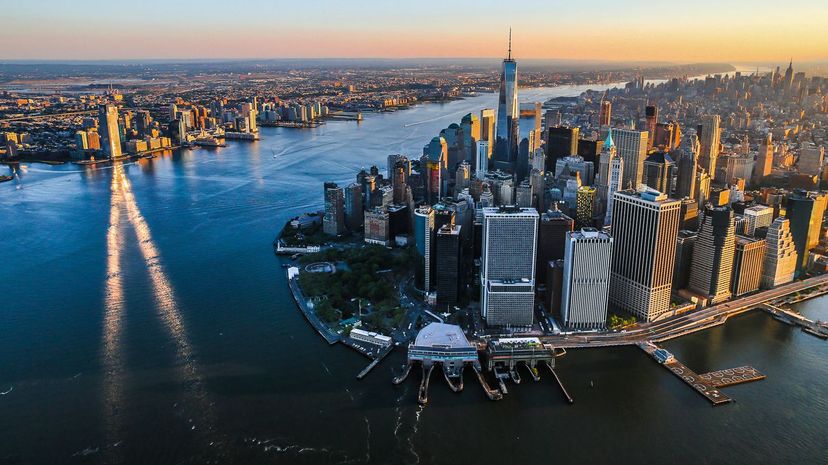
In 2009, Captain "Sully" landed a US Airways flight in the middle of the Hudson River. The Hudson reaches a depth of 216 feet near a gorge named World's End and flows right past the Statue of Liberty in NYC.
Advertisement
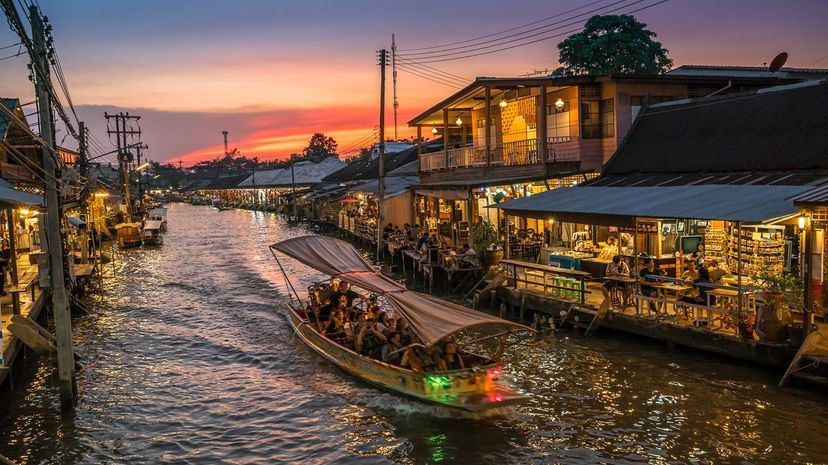
From food to transportation, the Mekong River makes life possible for around 60 million people. Starting in China, it traverses through Nepal, Laos, Thailand and Cambodia before finally emptying into the South China Sea near Ho Chi Minh City.
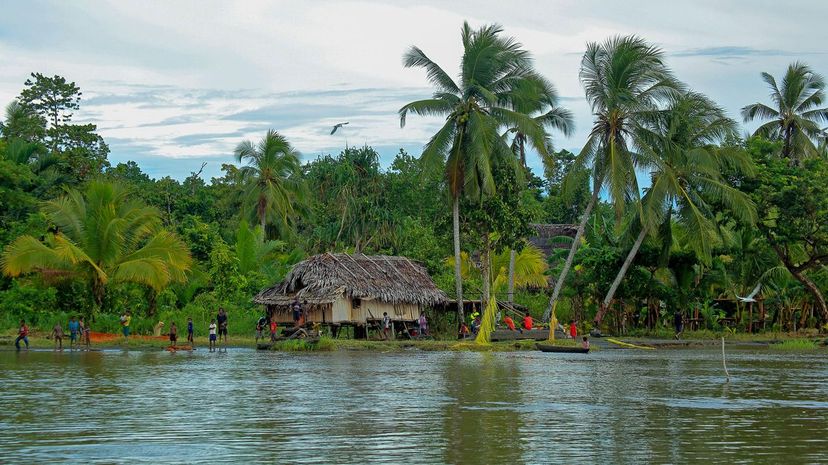
Large portions of the Sepik River are still undeveloped, and the people of New Guinea have used it for food since ancient times. Although it has the third-largest volume output of all the rivers on New Guinea, it is the longest at 700 miles.
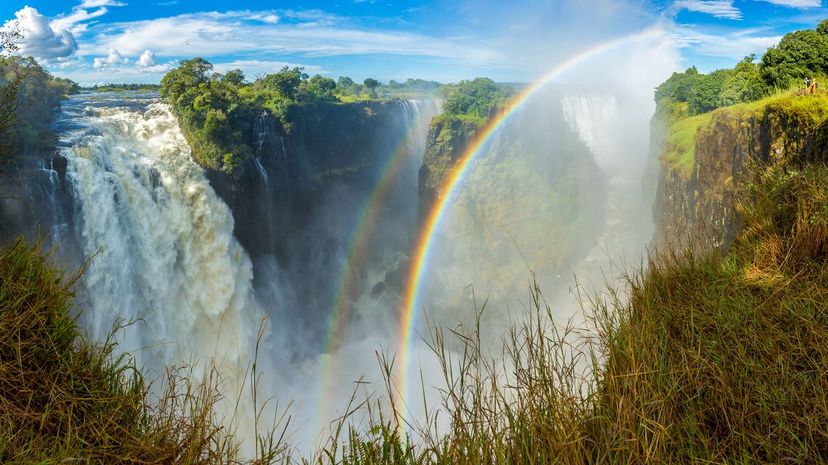
The Zambezi River is roughly half the size of Africa's largest river, the Nile. Visitors from all over the world travel Victoria Falls to take in the largest waterfall in the world when the Zambezi is at its highest.
Advertisement
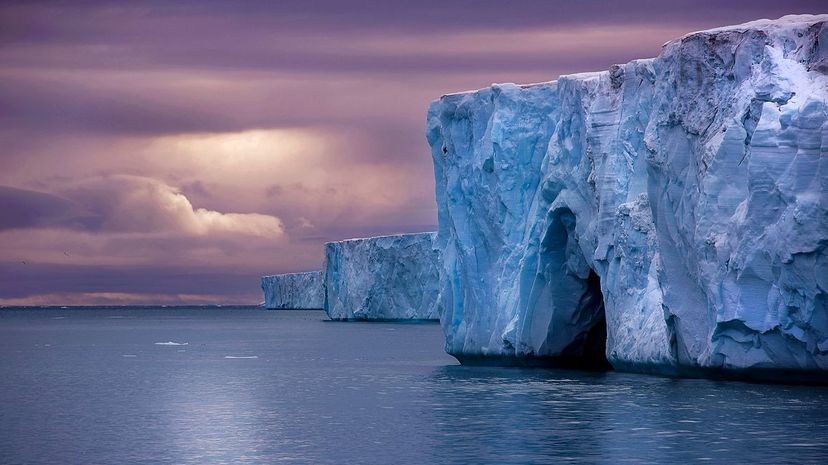
The Lena River is the third largest river in Russia, but it's one of the world's longest. Running for 2,668 miles from the Baikal Mountains, its picturesque wetlands provide the perfect environment for Siberian wildlife to thrive in cold climates.
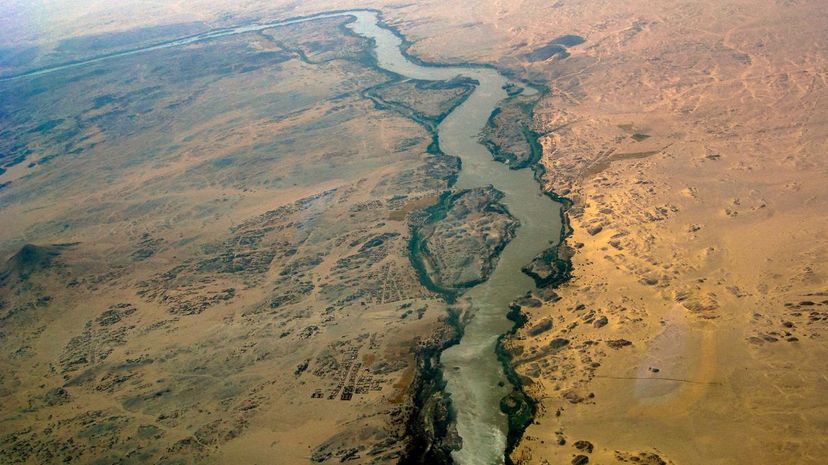
Although you're not likely to see one while visiting Egypt, the Nile hippopotamus thrives on the banks of the river. Able to run up to 19 mph, they are responsible for 3,000 deaths every year.
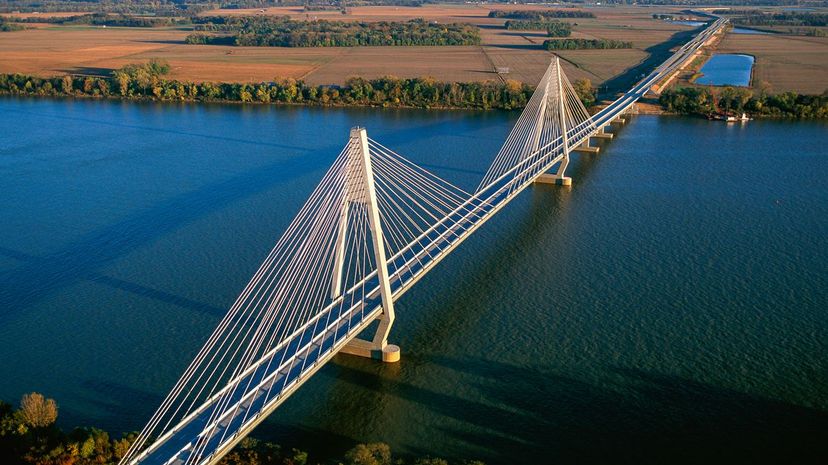
Flowing southwest for 981 miles, the Ohio River provides a natural boundary between Ohio and Kentucky and Indiana and Kentucky. It eventually joins up with the Mississippi River, but it's sadly considered one of the most polluted rivers in the United States.
Advertisement
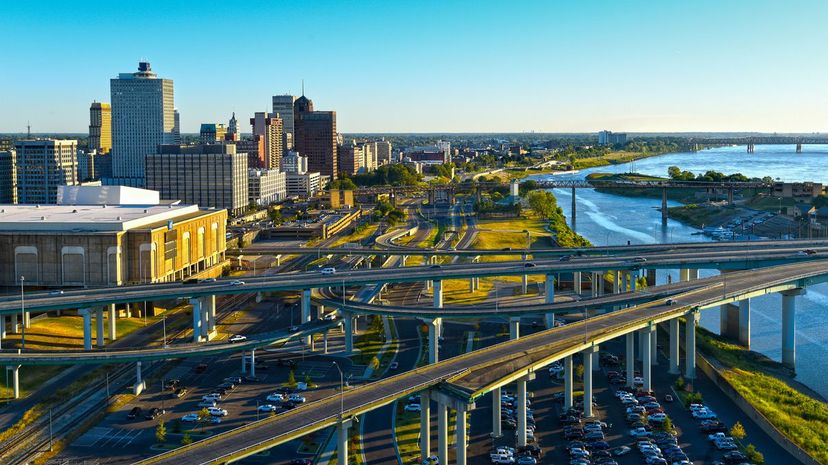
It's impossible to take a trip down Beall Street without going for a stroll along the banks of the Mississippi. Famous for its blues music, Memphis has been a long-time hub for the industries that utilize the river for transportation.
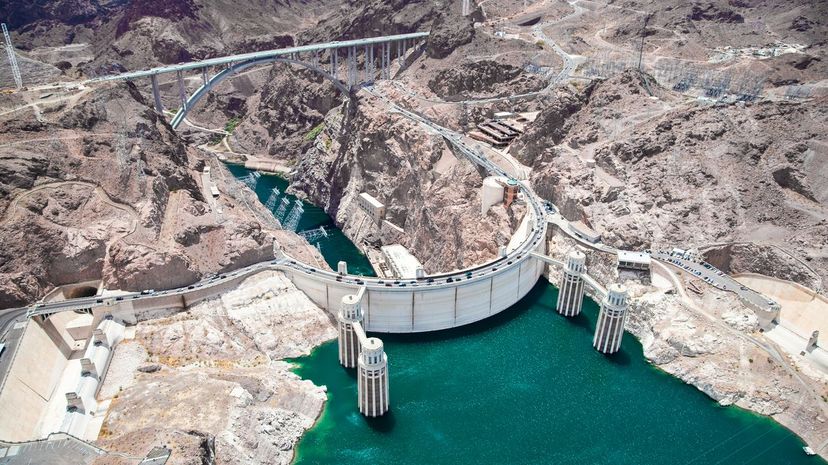
The Hoover Dam was constructed on the Colorado River to provide irrigation to desert regions of the American Southwest. For 1,459 miles, the Colorado River traverses through Arizona, Colorado, Nevada and California before crossing the Mexican border.
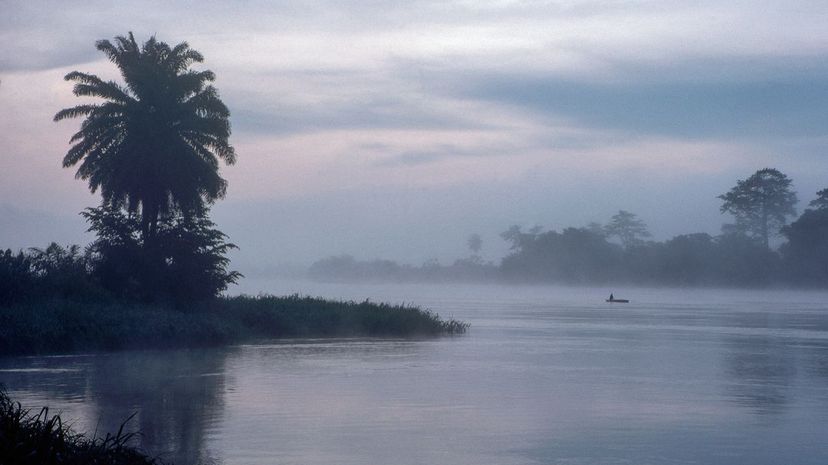
By volume, the Congo River is the world's second-largest behind the Amazon. As the deepest river in the world, it's traditionally been used for irrigation and transportation. However, its tremendous output is being used more and more to create hydroelectric power.
Advertisement
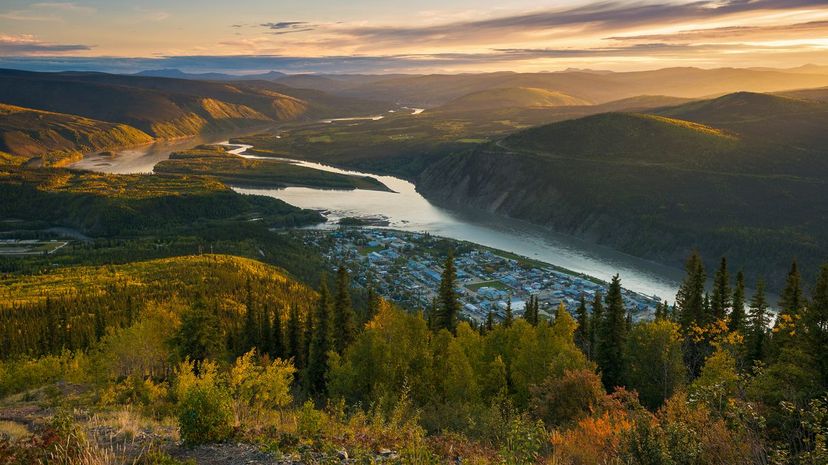
Some of the world's finest salmon fishing can be found on the Yukon River in both the U.S. and Canada. The mouth of the Yukon rests on the Bering Sea in Alaska, but the river's source lies in British Columbia, Canada.
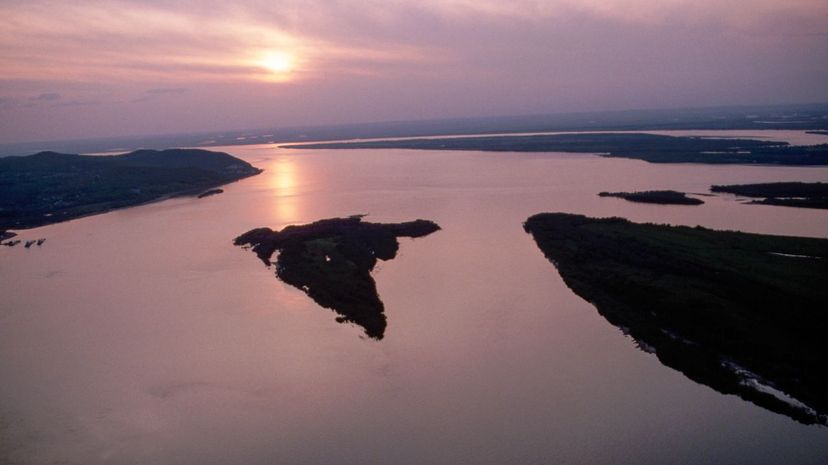
You will not find any dams along the banks of the Amur River in China or Russia. The river's relatively untouched landscape makes it the perfect breeding grounds for wildlife. One of the river's fish, the Kaluga, can grow up to 18 feet long!
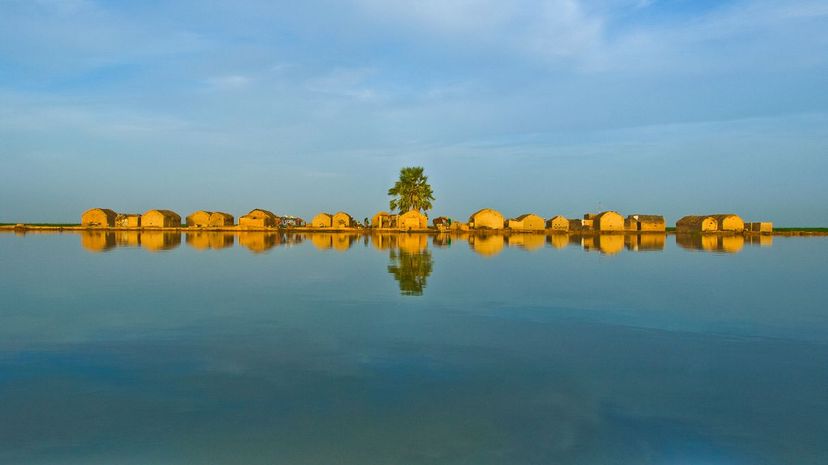
Logically, the largest portion of the Niger River is found in the Republic of Nigeria. It rises in the Guinea Highlands and forms a boundary between Niger and Libya. Lower water levels are currently forcing local ecologists to find invasive species of plants like the water hyacinth.
Advertisement
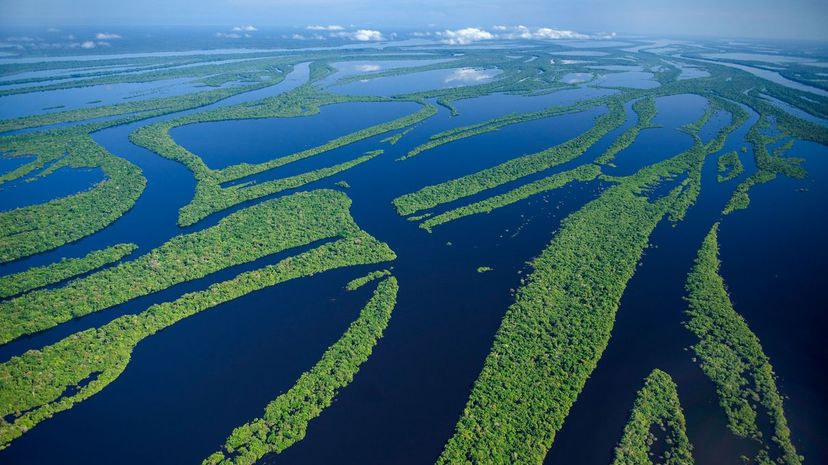
Debates still abound about which river is the longest, but recent studies have proven that the Amazon is smaller than the Nile. While the Nile runs for 4,132 miles, the Amazon comes up short at 3,977 miles.
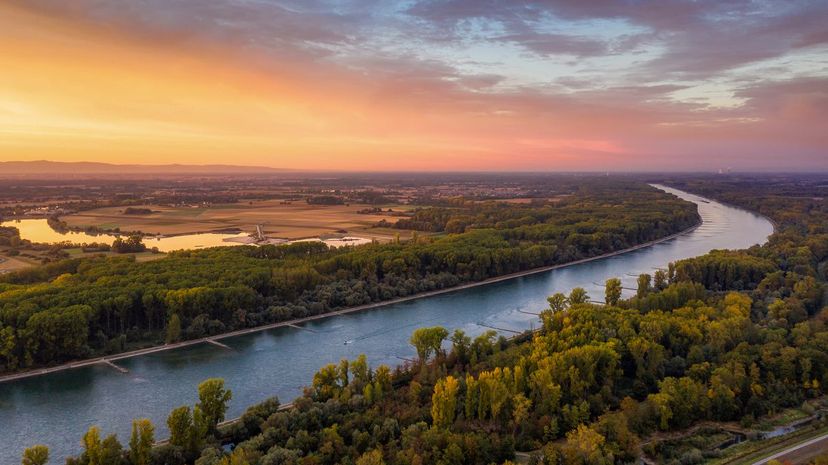
The Rhine may only be 766 miles long, but it's a major water source for Germany and the Netherlands. One of the few rivers in the world to flow towards the north, it empties into the North Sea near Rotterdam.
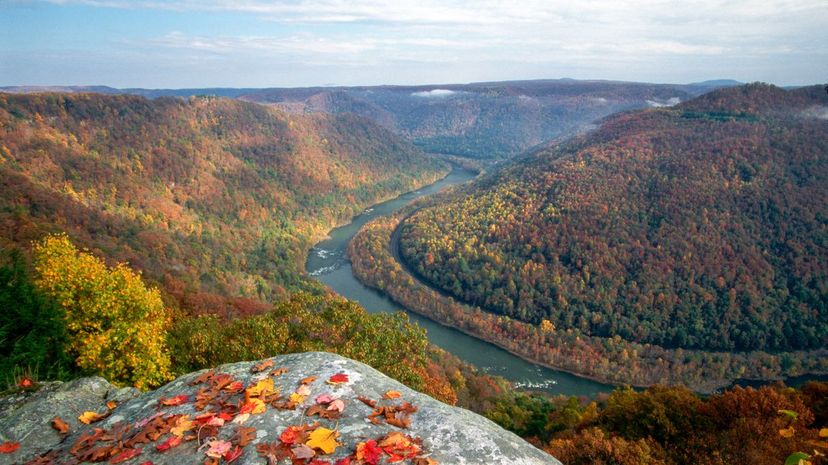
Scholars debate about the way the New River got its name. Some believe that it was a translation of a Native American word, but others believe it was named for an earlier settler. The New River meets up with the Gauley River to form the Kanawha; it's one of the most unique confluences in the world.
Advertisement
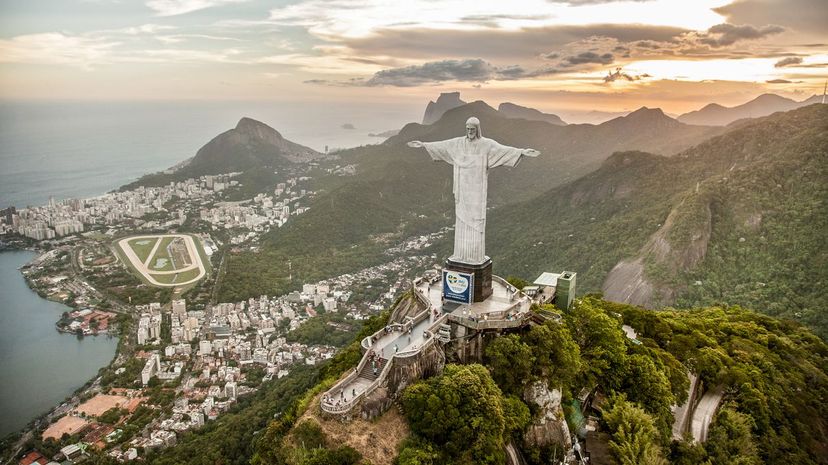
With 6.9 million people, Rio de Janeiro is the largest city in Brazil, but it's not located on the Amazon River. The largest city on the Amazon is Manaus, with 2 million people. If you want to visit a river in Rio de Janeiro, you'll have to visit the Guandu River.
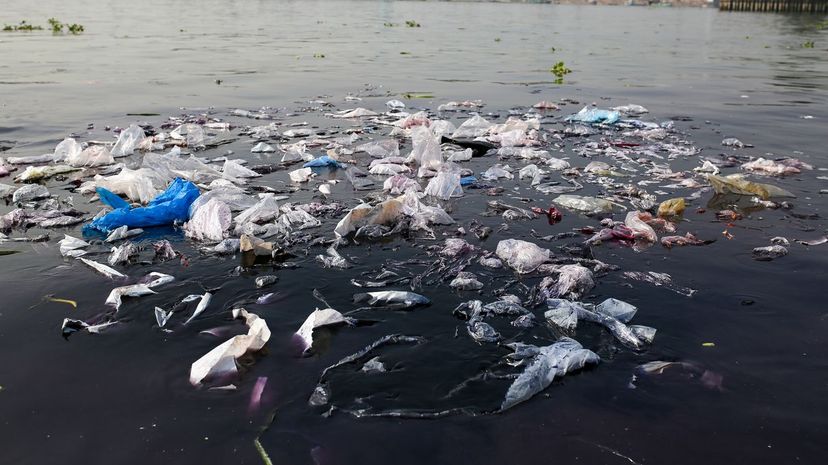
Right behind the Ganges, the Indonesian river named the Citarum is the world's most polluted. Over 200 million people depend on the river, and environmentalists are working hard to find sustainable solutions for the region.
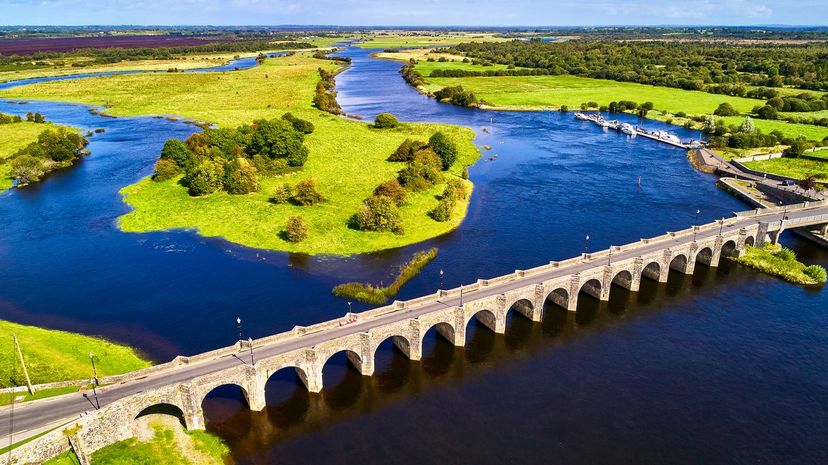
The River Shannon runs roughly through the middle of Ireland and drains into a basin of the same name. Covering an area that comprises 20% of the country, its river basin is one of Europe's most spacious.
Advertisement
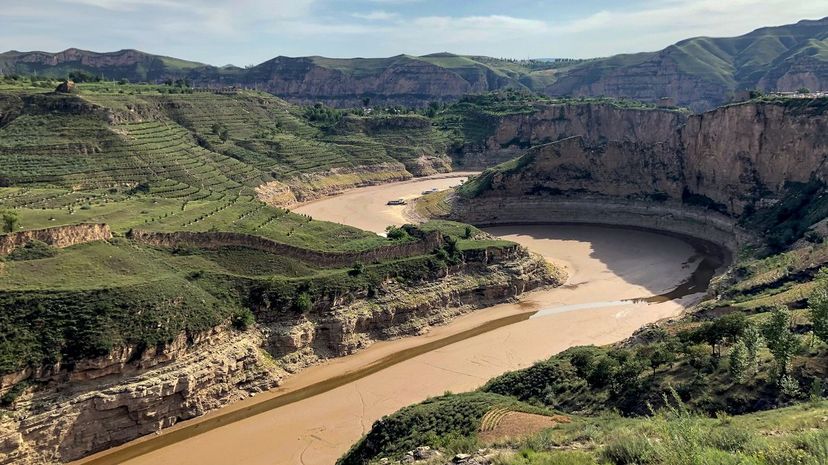
China's Yellow River basin was one of the first settled areas within the nation. The river's reputation for flooding gives it a nickname that locally translates to "sorrow." Once a prosperous river full of industry, it's now undergoing massive conservation efforts.
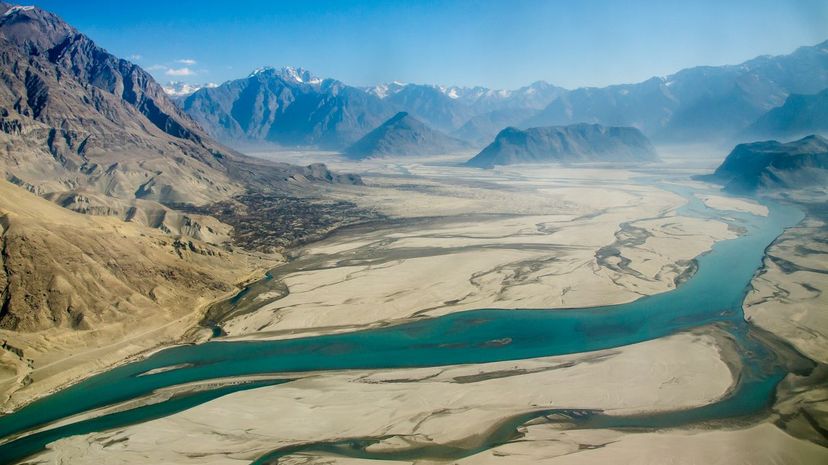
Traversing its way along the Pakistani border to the Arabian Sea, the Indus River is one of the only water sources in the region. Also known as the "Father of All Rivers," it was once home to the Harappan Civilization.